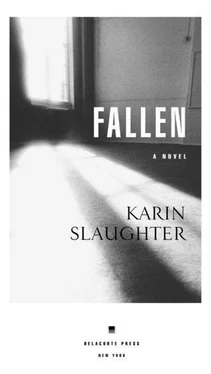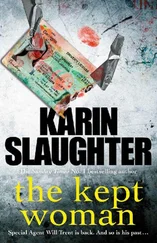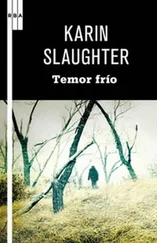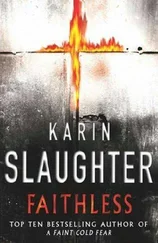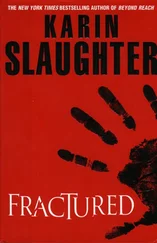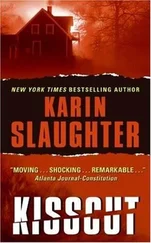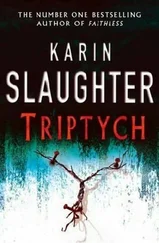If they were lucky, this diagnosing and classification process took around six weeks before they were assigned to another prison or moved to the permanent facilities at D&C. Until then, the inmates were on twenty-three-hour lockdown, which meant that but for one hour a day, they were confined to their cells. No cigarettes, coffee, or soda were allowed. They could buy only one newspaper a week. No books were allowed, not even the Bible. There were no TVs. No radios. No phones. There was a yard, but inmates were allowed out only three days a week, and that was weather permitting and only for whatever time was left on their one hour a day. Only long-term residents were allowed visitors, and then it was in a room that was halved by a metal mesh that required you to yell to be heard over the voices of the other visitors. No touching. No hugging. No contact whatsoever.
Maximum security.
There was a reason suicide rates in prisons were three times higher than on the outside. It was heartbreaking to think about their living conditions, until you read some of their files. Rape of a minor. Aggravated sodomy with a baseball bat. Domestic violence. Kidnapping. Assault. Shooting. Beating. Mutilating. Stabbing. Slashing. Scalding.
But the really bad guys were sitting on death row. They’d been convicted of killings so heinous that the only way the state knew how to deal with them was to put them to death. They were segregated from the rest of the population. Their lives were even more limited than the intake prisoners’. Total lockdown. Total isolation. No hour a day in the sunshine. No shared meals. No stepping past the iron bars that held them in their cells except once a week for a shower. Days could pass without hearing another man’s voice. Years could pass without feeling another person’s touch.
This was where Boyd Spivey was housed. This was where the former highly decorated detective was living while he waited to die.
Will felt his shoulders hunch as the gate leading to the death row cells swung closed behind him. Prison design lent itself to wide, open corridors where a running man could easily be taken out with a rifle from a hundred yards away. The corners were sharp ninety-degree angles that deliberately discouraged loitering. The ceilings were high to trap the constant heat from so many sweating bodies. Everything was meshed or barred—windows, doors, overhead lights, switches.
Despite the spring climate, the temperature inside hovered somewhere around eighty. Will instantly regretted the wicking nature of his running shorts under his heavy jeans, which clearly were not meant to be worn in tandem. Amanda, as always, seemed right at home, no matter the greasy-looking bars or the panic buttons that lined the walls every ten feet. D&C’s permanent inmates were classified as violent offenders. A lot of them had nothing to lose and everything to gain by engaging in willful acts of violence. Taking the life of a deputy director of the GBI would be a big feather in any man’s cap. Will didn’t know how they felt about cops who took down other cops, but he didn’t imagine that was much of a distinction for inmates looking to raise their status.
For this reason, they were escorted by two guards who were approximately the size of commercial refrigerators. One walked in front of Amanda and the other loomed behind Will, making him feel practically dainty. No one was allowed to carry guns into the prison, but each guard had a full array of weaponry on their belts: pepper spray, steel batons, and worst of all a set of jangling keys that seemed to announce with every footstep that the only way out of this place was through thirty locked doors.
They turned a corner and found a man in a gray suit standing outside yet another locked door. As with every other door in the place, there was a large, red panic button beside the jamb.
Amanda extended her hand. “Warden Peck, thank you for arranging this visit on such short notice.”
“Always glad to help, Deputy Director.” He had a gravelly old man’s voice that fit perfectly with his weathered, mahogany face and slicked-back gray mane. “You know you need only pick up the phone.”
“Would it be a bother to ask if you could print out a list of all the visitors Spivey’s had since he entered the system?”
Peck obviously thought it was a bother, but he covered for it well. “Spivey’s been in four different facilities. I’ll have to make some calls.”
“Thank you so much for going through the trouble.” She indicated Will. “This is Agent Trent. He’ll need to be in the observation room. He’s got a somewhat checkered past with the prisoner.”
“That’s fine. I should warn you that we got Mr. Spivey’s death notice last week. He’s to be executed on the first of September.”
“Does he know?”
Peck nodded gravely, and Will could see that he didn’t like this part of his job. “It’s my policy to give the inmates as much information as we can as soon as we can. The news has sobered Mr. Spivey considerably. They generally become quite docile during this time, but don’t be lulled into complacency. If at any point you feel a threat, stand and leave the room immediately. Don’t touch him. Avoid being within reaching distance. For your safety, you’ll be monitored through the cameras and one of my men will be outside the door at all times. Just keep in mind that these men are quick, and they have absolutely nothing to lose.”
“I’ll just have to be quicker.” She winked at him as if this was some kind of frat party where the boys might get rowdy. “I’m ready when you are.”
Will was led one door down to the observation room. The space was small and windowless, the sort of prison office that could’ve easily passed for a storage closet. There were three monitors stacked on a metal desk, each showing a different angle of Boyd Spivey in the adjacent room. He was shackled to a chair that was undoubtedly bolted to the floor.
Four years ago, Spivey hadn’t exactly been handsome, but he’d carried himself with a cop’s swagger that made up for his deficits. His reputation was as a practical joker, but a good cop—the guy you’d want to have your back when things went from bad to worse. His file was full of commendations. Even after he’d taken a deal to plead guilty for lesser time, there were men who worked in his station house who refused to believe that Spivey was dirty.
Now, everything about the man said “con.” He was as hard looking as a piece of honed granite. His skin was pockmarked and puffy. A long, ratty ponytail draped down his back. Prison tattoos decorated his forearms and twisted around his neck. His thick wrists were bolted to a chrome bar welded to the center of the table. His legs were crossed at the ankles. The chains around his leg irons were tightened into a straight line. Will guessed Boyd passed his days working out in his cell. His bright orange uniform was busting at the seams around his overly muscled arms and wide chest.
Will wondered if the extra weight was a good or bad thing as far as the man’s impending execution was concerned. After several gruesome mishaps with the electric chair, including a man whose chest had burst into flames, Georgia had finally been ordered by the state supreme court to retire Old Sparky. Now, instead of being shaved, stuffed with cotton, and fried to a crisp, the condemned were strapped to a table and given a series of drugs that stopped their breathing, their hearts, and finally their lives. Boyd Spivey would probably get a larger dose than most. It would take a powerful combination of drugs to put down such a large man.
A crackly cough came through the tiny speakers on the desk. In the next room, Will could see Boyd staring straight ahead at Amanda, who was leaning against the wall despite the chair that was opposite his at the table.
Читать дальше
